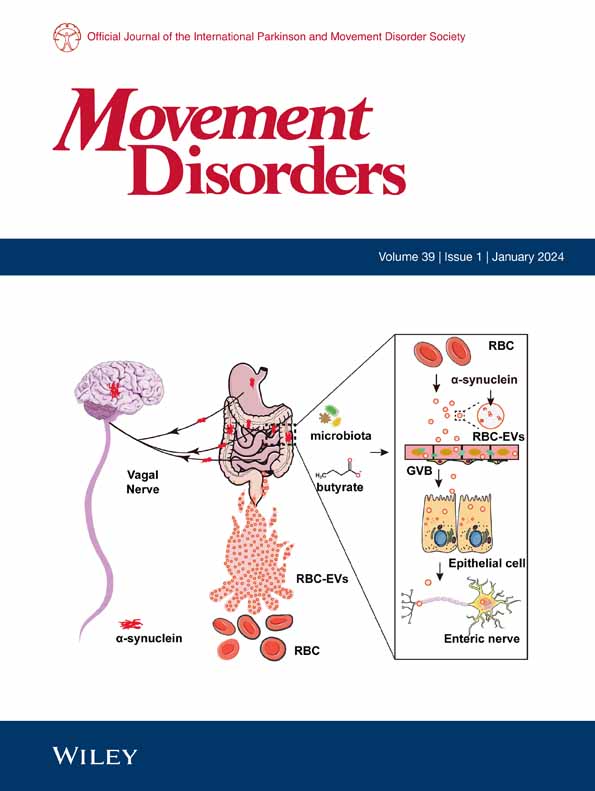Evaluation of Cerebrospinal Fluid α-Synuclein Seed Amplification Assay in Progressive Supranuclear Palsy and Corticobasal Syndrome.
IF 7.4
1区 医学
Q1 CLINICAL NEUROLOGY
引用次数: 0
Abstract
BACKGROUND Seed amplification assay (SAA) testing has been developed as a biomarker for the diagnosis of α-synuclein-related neurodegenerative disorders. OBJECTIVE The objective of this study was to assess the rate of α-synuclein SAA positivity in progressive supranuclear palsy (PSP) and corticobasal syndrome (CBS) and to analyze clinical and pathological features of SAA-positive and -negative cases. METHODS A total of 96 cerebrospinal fluid samples from clinically diagnosed PSP (n = 59) and CBS (n = 37) cases were analyzed using α-synuclein SAA. RESULTS Six of 59 (10.2%) PSP cases were α-synuclein SAA positive, including one case who was MSA-type positive. An exploratory analysis showed that PSP cases who were Parkinson's disease-type positive were older and had a shorter disease duration compared with SAA-negative cases. In contrast, 11 of 37 (29.7%) CBS cases were α-synuclein SAA positive, including two cases who were MSA-type positive. CONCLUSIONS Our results suggest that α-synuclein seeds can be detected in PSP and CBS using a cerebrospinal fluid α-synuclein SAA, and in PSP this may impact on clinical course. © 2024 The Author(s). Movement Disorders published by Wiley Periodicals LLC on behalf of International Parkinson and Movement Disorder Society.对进行性核上性麻痹和皮质基底综合征脑脊液α-突触核蛋白种子扩增测定的评估
背景种子扩增检测(SAA)已被开发为诊断α-突触核蛋白相关神经退行性疾病的生物标记物。目的本研究旨在评估进行性核上性麻痹(PSP)和皮质基底综合征(CBS)中α-突触核蛋白SAA阳性率,并分析SAA阳性和阴性病例的临床和病理特征。结果59例PSP病例中有6例(10.2%)α-突触核蛋白SAA阳性,其中1例为MSA型阳性。一项探索性分析显示,与 SAA 阴性病例相比,帕金森病型阳性的 PSP 病例年龄更大,病程更短。结论我们的研究结果表明,使用脑脊液α-突触核蛋白SAA可检测出PSP和CBS中的α-突触核蛋白种子,这可能会对PSP的临床病程产生影响。© 2024 作者。运动障碍》由 Wiley Periodicals LLC 代表国际帕金森和运动障碍协会出版。
本文章由计算机程序翻译,如有差异,请以英文原文为准。
求助全文
约1分钟内获得全文
求助全文
来源期刊

Movement Disorders
医学-临床神经学
CiteScore
13.30
自引率
8.10%
发文量
371
审稿时长
12 months
期刊介绍:
Movement Disorders publishes a variety of content types including Reviews, Viewpoints, Full Length Articles, Historical Reports, Brief Reports, and Letters. The journal considers original manuscripts on topics related to the diagnosis, therapeutics, pharmacology, biochemistry, physiology, etiology, genetics, and epidemiology of movement disorders. Appropriate topics include Parkinsonism, Chorea, Tremors, Dystonia, Myoclonus, Tics, Tardive Dyskinesia, Spasticity, and Ataxia.
 求助内容:
求助内容: 应助结果提醒方式:
应助结果提醒方式:


